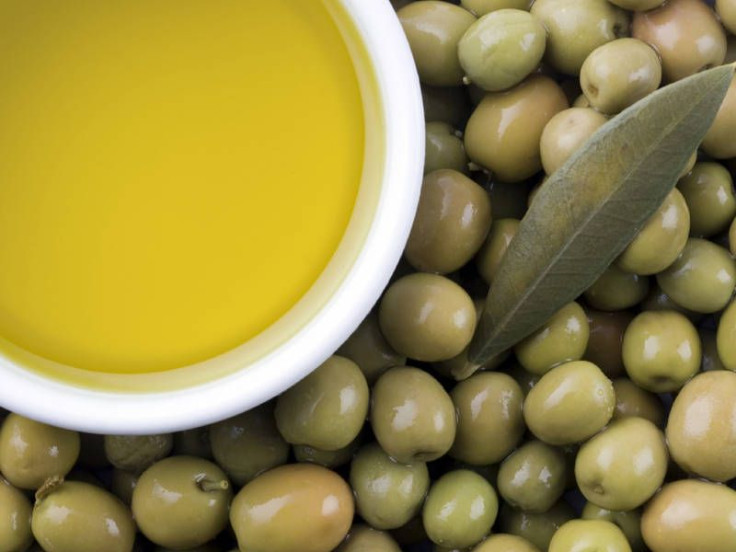Olive Oil Health Benefit: Makes You Feel Full, Boosts Mood

Olive oil, when compared to other natural oils and fats, has the greatest effect in making people feel full- another health benefit suggesting that it can help people lose weight, or at least avoid gaining more.
A German and Austrian research group studied the health benefits on a normal diet of four different edible fats and oils: butter, lard, rapeseed (or canola) oil, and olive oil. Over the course of three months, study participants are 500 grams of low-fat yogurt mixed with one of the four fats or oils every day, in addition to their normal diet.
Olive oil had the biggest effect on satiety, or feeling full after eating, and none of the olive oil eaters gained any weight or body fat during the three-month study period.
"The olive oil group showed a higher concentration of the satiety hormone serotonin in their blood," said study leader Dr. Peter Schieberle in a statement.
"Subjectively speaking, these participants also reported that they found the olive oil yoghurt very filling."
The research on olive oil's health benefits was conducted by a work group led by Schieberle at the Technische Universität München (TUM) in Germany, in collaboration with Dr. Veronika Somoza at the University of Vienna.
Schieberle and his colleagues wondered why olive oil had such a dramatic effect, since canola oil has similar fatty acids but did not have similar health benefits. They guessed that the aroma compounds in olive oil were the key to its satiety advantage, and conducted a second experiment to test the hypothesis.
In the second part of the study, there were only two participant groups: a control group that was given plain low-fat yogurt, and another that was given yogurt with olive oil aroma extracts.
The results definitively showed that olive oil aroma compounds provided the same health benefit as olive oil itself. Members of the aroma group felt more full after eating the yogurt, and ate an average of 176 kilocalories less per day than the control group.
"The aroma group adapted their eating habits - but the control group participants were obviously not able to do likewise," said Schieberle. "We also found that in comparison to the other group, the control group had less of the satiety hormone serotonin in their blood."
Serotonin is a neurotransmitter chemical that influences brain cells related to appetite, sexual desire and function, mood, sleep, memory and learning, and some social behavior. Diet has a strong influence on serotonin levels, and this study highlights olive oil's role in boosting serotonin.
How long olive's oil's health benefits in increasing satiety last depends on blood sugar levels over time. The faster blood sugar levels fall, the sooner the person will feel hungry again.
The next step in Schieberle's research is so figure out which of the aroma compounds are most effective at slowing down the drop in blood sugar levels. Thus far, the researchers identified two aroma compounds in olive oil that affect blood sugar and are present in larger amounts than in other oils: Hexanal and E2-Hexanal.
Schieberle hopes that his team's work can lead to the development of more effective reduced-fat products that are actually filling.
The takeaway: adding olive oil to your diet makes you less hungry after a meal, and can help avoid eating more than you need.



























